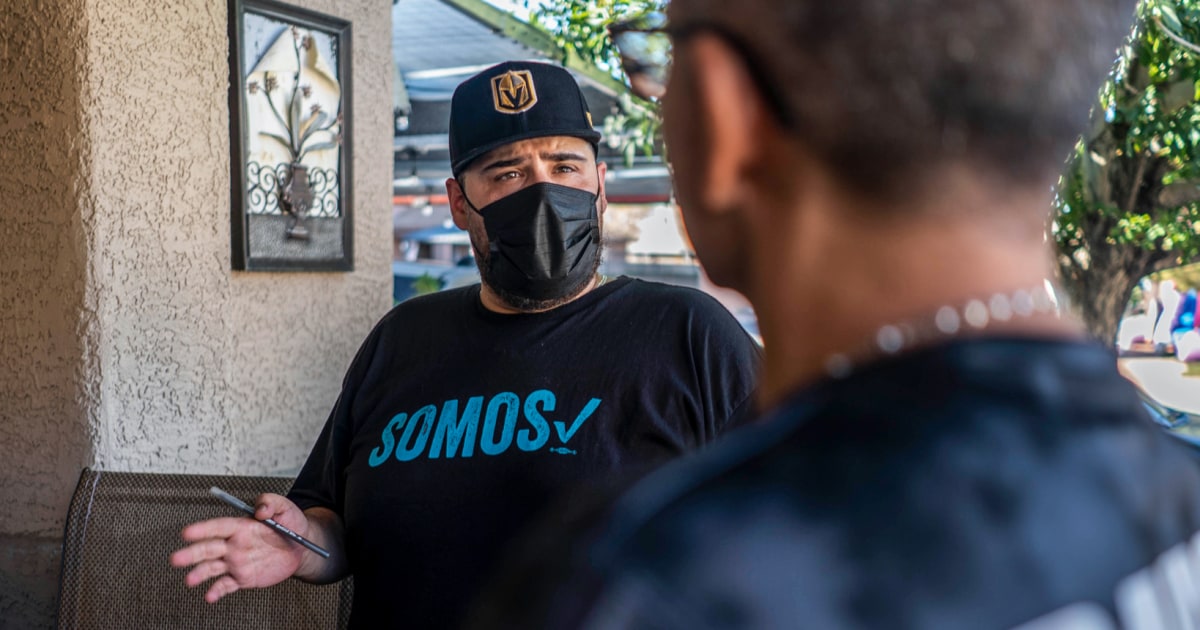Editor's Note:
Ed Morales (@SpanglishKid) is a journalist and speaker at the Center for the Study of Ethnicity and Race at Columbia University and the Craig Newmark School of Journalism at CUNY.
He is the author of the book "Latinx: The New Force in American Politics and Culture".
The opinions expressed are yours.
See more opinion pieces on CNN.
(CNN) -
A reserved story from the entertainment site Deadline about how TV star Eva Longoria and Black-ish creator Kenya Barris are developing a new sitcom revolving around a "modern Latinx family" seemed to blow up to Texas Senator Ted Cruz this Wednesday. "No current Latino uses the made-up term Latinx," he tweeted, reiterating a now-familiar conservative talking point.
Since its use became mainstream in the last five years, Latinx has been a term attacked by critics on the right and left for different reasons. The use of the insult “woke” - which in Spanish translates as “being awake” - allows conservatives to claim that it is an indoctrination tool for liberal ideology, while some progressives feel that it overshadows the uncomfortable legacy of colonialism and racism Latin Americans. But the reality of Latinx is not as simple as this political debate.
The ability to name is often said to be power, whether it comes from an authority or a government, or from marginalized people seeking to be heard in everyday conversation.
When I first heard the term "Latinx" in 2014 to describe people of Latin American descent living in the US from students at a seminar I teach at Columbia University, I felt compelled to listen.
Ted Cruz and his repeated criticism of politicians for vacationing during times of crisis
We had spent various parts of the semester discussing the evolution of fairly interchangeable terms such as Hispanic, sometimes, but not exclusively, favored by those with more conservative leanings, and Latino, in turn, its literal counterpart, from Latino / a and Latina / a. , to Latin @. Those latest iterations were designed to recognize that Spanish is a language whose nouns are designated as masculine and feminine, recognizing that “Latino” was a masculine term that included women as an afterthought, just as “man” once meant. men and women in English.
But Latinx was something new, a kind of radical coup designed to “eliminate” the notion of gender entirely and in this way recognize non-binary people and, by extension, the LGBTQ community. The origin of Latinx is unclear, although some have traced it back to online forums in the mid-1990s, while others point to the use of "x" among Chicano feminist writers such as Cherrie Moraga, who wanted to celebrate the use of the letter "x" in indigenous language. However, others see the 'x' as a reference to those who have been overshadowed by the legacy of colonialism, the unknown and the marginalized, in the same way that Malcolm X used it to symbolize his stolen African identity.
Since then, the use of the word Latinx to describe people of Latin American descent born in the United States has sparked continuing controversy, but its use appears to be growing. Intended to be a more inclusive term that recognizes non-binary and LGBTQ people, Latinx symbolizes a new era in racial and ethnic identification in the United States. According to Google Trends, web search interest for the term Latinx over the last five years has increased significantly, peaking in September of last year (most likely due to Hispanic Heritage Month), where searches increased by 88% in California — the most Latino-populated state in the country. Latinx reflects the desire that younger people want to be heard.
OPINION |
Nothing justifies racism and violence against Asians
While a Pew Hispanic study conducted last August showed that only 3% of respondents preferred the term, 42% of young people ages 18-29 have heard of the term and 14% of those who are women use it. .
This likely explains why Longoria and Barris chose to use the term in the announcement of the new spinoff series.
However, the term is far from being universally accepted as it is being attacked from both the conservative and progressive sides. Some Hispanics feel the term is an external imposition of English — difficult to pronounce in Spanish, laden with liberal American values, while others feel it is an elitist academic term that working people don't want to use. Others, fueled by a growing awareness of trends against black and indigenous communities in Latin American cultures, feel that broad terms like Latinx, Latino and Hispanic erase their unique identities.
The idea that Latinx represents an imposition of American culture on the Spanish language or some notion of Latin American culture seems to lose its credibility when one considers the astonishing variety of English words that have become common use in Spanish-speaking Latin America. There is no outrage when Latin Americans use words like "brunch" and "hipster," and I still remember hearing residents of Buenos Aires, Argentina refer to their living rooms as "the living room" in the early 2000s.
The word Latinx seems to be difficult to pronounce, but no one in my Spanish-fluent family had a hard time with a word like "Kleenex" as a child. Perhaps it is the missing e: some Spanish speakers prefer to use the term "Latin", which fulfills the same gender function of the term while dispenses with the apparent visceral charge of "x", which generates an emotional reaction among so many detractors.
The objection to the use of any form of "Latino" or "Latin American" because those words represent the legacy of Spanish or continental European colonialism has more validity, particularly at this time of "racial reckoning." The unofficial myths of racial democracy used in several Latin American countries employ an acceptance of racial mixing that often serves to categorize black and indigenous identity and culture in favor of its subordination to European values. The growth of movements demanding the recognition of black and indigenous people of Latin American descent has led to another term, BIPOC, which refers to black and indigenous people of color,bypassing the "Latino" identification and allowing solidarity with blacks and non-Spanish speaking Indians of the Americas.
However, the spread of the use of Latinx, slow as it may be, has been an important step forward, as it represents the first time that an American ethnic-racial group has at least debated the use of a term that directly refers to the inclusion of its non-binary and LGBTQ members. Despite arguments that the term is considered "elitist" or used too quickly, particularly during the last presidential election cycle, as something imposed from above, web searches and conversations on social networks show that there is growing interest.
It seems unlikely that the broader Hispanic-Latino label will disappear, as much of the government apparatus, political strategies and media marketing depend on it.
But then there is the question of how the rhetoric of hate does not seem to distinguish between the variations of the descendants of Latin Americans.
The recent spate of attacks on Asian Americans driven by Donald Trump who blames the COVID-19 pandemic on China along with his constant insults, has not forgiven non-Chinese Asians, the latest serious incident in New York. involved an immigrant from the Philippines.
Latinos are also often grouped as targets of discrimination, and their citizenship status is often questioned because of their appearance or because of their use of English with a Spanish accent.
Biden condemns violence against Asian Americans in Atlanta 4:54
There is a need for solidarity among people of Latin American descent despite our many racial, ethnic, linguistic, and religious differences.
However, at the same time, we do not want to lose what makes us special by being Mexican, Puerto Rican, Dominican, Colombian, Salvadoran, Guatemalan, black, indigenous, female, or queer.
Latinx may do the trick, but it serves everyone to remember the evolutionary journey from
Colored
and
Negro
(both English terms) to Afro and Afro-American, and even "black."
No matter how many changes and variations, what these times show is that the power of naming must be reserved for those whom history has long ignored.
LatinosLatinos in the United States









